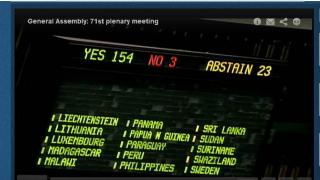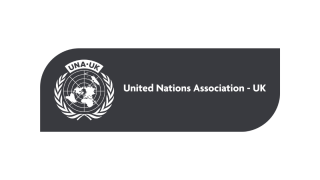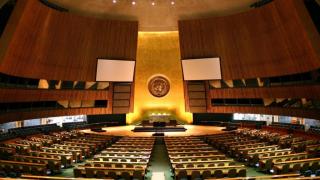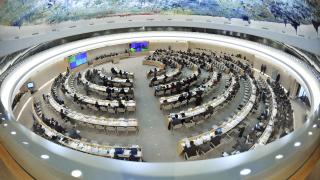
After six years of diplomatic negotiations, and more than 10 years of campaigning from civil society worldwide, governments at the United Nations voted for the Arms Trade Treaty (ATT) by a resounding majority (154 Yes votes, 3 No votes and 23 Abstentions). The treaty enshrines in new international law a set of clear rules for all global transfers of weapons and ammunitions.
The vote at the UN General Assembly was held just five days after Iran, North Korea and Syria blocked the Treaty’s adoption by consensus in a nail-biting session on the last day of the Final Conference on the ATT, as attended by UNA-UK's Communications and Campaigns Officer, Ben Donaldson, who was working as part of the Control Arms coalition.
The ATT will make it harder for human rights abusers and dictators to acquire deadly weapons, and will make a difference to the lives of people living in fragile states who suffer each day from the impacts of armed violence.
Whilst the Treaty does not incorporate all of the provisions that UNA-UK and the Control Arms coalition have been pushing for (weaknesses remain on scope and public reporting for example), the final version of the Treaty was an improvement on previous drafts and will make a significant difference on the ground.
The ATT prohibits conventional arms transfers when they would violate relevant international treaty obligations, including those contained in human rights treaties. The Treaty also prohibits all transfers of arms that would be used in the commission of genocide, crimes against humanity or war crimes. The Treaty also addresses the impact of the illicit arms trade on gender based violence and requires states to consider the risk of arms being diverted into the black market as part of the criteria for authorising / prohibiting a transfer.
The ATT will open for signature on 3 June and will enter into force 90 days after it accumulates 50 ratifications.
A copy of the Arms Trade Treaty is available to download here.






